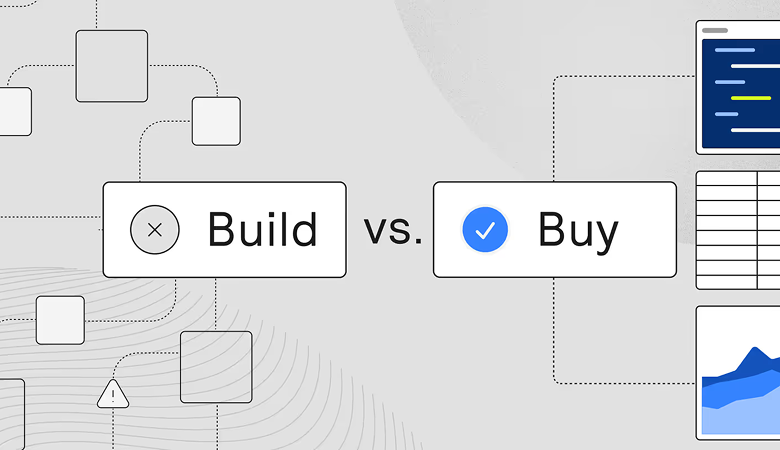It’s no secret that interviewing can be time-consuming and stressful for hiring teams and candidates. End-to-end, the interview process at Orb requires hours of investment for interviewers and candidates. As an early stage startup, it’s important that there’s a mutual fit and we give candidates an opportunity to meet the team.
This is certainly a non-trivial investment, but it’s worth it! We do our best to ensure a delightful process from start to finish by continually collecting learnings and making incremental improvements to our process over time.
These are the components of our interview process we consider the most important.
Fast, efficient process
As a fast-growing company (we’ve more than tripled our customer base since the start of this year and doubled the size of our team), it’s important that candidates can go through the entire interview process in days instead of weeks or months. Our process consists of three steps: a call with a recruiter, a technical screen, and an on-site at the Orb office (conveniently located in San Francisco).
Orb interviewers are prompted to provide interview feedback in under 24 hours, so we can get an answer to the candidate – regardless of the outcome – within days (and sometimes even same-day).
After a candidate visits for an onsite interview, the Orb team convenes same-day (or the following day if calendars won’t allow it) to discuss feedback on the candidate, where we cover both strengths and potential risks. Hiring managers use this feedback to get to a decision for candidates, resulting in us turning around decisions from final round interviews in days. We aim to avoid black-box decisions and drawn-out candidate processes, so we work to provide quick decisions throughout the process.
Collaborative, domain-relevant questions
Billing is a very complex domain with unique and interesting technical problems. During the interview process (both in the on-site and in the technical screen), we ask candidates versions of technical problems we have dealt with ourselves during our time building Orb. These problems tackle many of the core problems we’ve solved at Orb to power usage-based billing.
Asking questions about Orb’s code system allows us to teach candidates during our interview process (we frequently reference interview problems to new hires who have joined when explaining our system) and gives a bit of a preview of some of the problems we’re trying to solve.
These interviews, in turn, also serve as a way for candidates to see what working at Orb would be like and if it’s something they’d be interested in. Mutual fit is very important to us – and that means candidates also need to be excited about Orb!
Most of the questions we ask are system design questions that allow candidates to collaborate with the interviewer in designing a system that fits the question's requirements. We’ve designed our coding interviews to act similarly, with a question that is based on real production code we run in our system today (albeit, in a simplified form). To help ease the tension in the coding interviews, candidates are given both a verbal walkthrough and written instructions of the problem. Interviewers leave the room after talking through the problem and return at the end of the interview to discuss the candidate’s solution.
Fewer, high signal interviews
Across all interviews, we also try to optimize the signal we’re getting and avoid unnecessary interviews where possible. There are some signals we care deeply about – such as a candidate’s approach to collaboration – and we try to assess these qualities across multiple interviews to look for potential patterns. In cases where signals are less important (e.g. assessing depth of expertise in a tangential domain), we opt to include fewer interview questions that address these areas in our interviews.
Lastly, we actively try to avoid creating custom or differing interview loops for candidates - it’s important to us that the candidate experience remains consistent for every candidate. This is to ensure consistency in our interviews (fewer interviews mean less room for interviewer discrepancies and biases) and allows us to focus on a core set of interviews that we can continue to improve holistically.
On-site interview experience
Orb is an in-office first company (we’re in office four days a week). We believe close, in-person collaboration is the best way to build a product at an early-stage startup. To that end, we highly value having candidates on-site during the final stage of their interview process.
In-person interviews allow us to work together through a problem that helps candidates get a feel for the Orb environment. It gives interviewers a peek into how candidates prefer to collaborate with others.
Also, Orb also isn’t just a team made up of engineers! As a part of the on-site, candidates are included in a team lunch where they can chat more deeply with the interviewers they’ve already met in addition to other members of the team. The team lunch provides the candidate time to relax in-between all the interviews during the day. We strongly believe these lunches are a great way to understand and get to know the Orb culture (I very much enjoyed mine when I interviewed) and encourage candidates to chat with and meet the team!
Looking forward
As time goes on, we fully expect the experience of interviewing for a role on the Engineering team at Orb will evolve. Where possible, we want to continue to use a standardized format for our interviews while balancing the need to continually re-evaluate what we look for. As the team continues to grow, we expect this to be an ever-changing area, ensuring a small startup like ours can continue to adjust and recalibrate.
Our goal for candidates who go through our interview process is to provide a fair, comprehensive, and enjoyable experience.
Orb is always hiring for Software Engineers! If you or someone you know are interested, make sure to take a look at our careers page and see if there’s a role that catches your attention.



